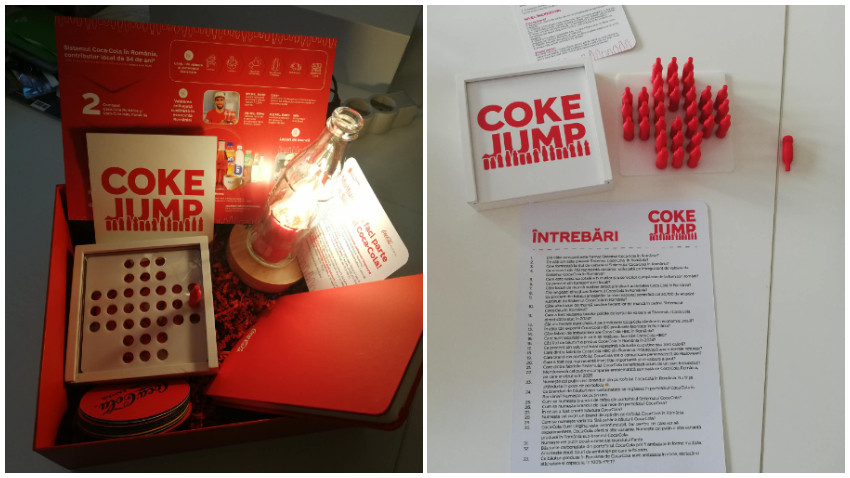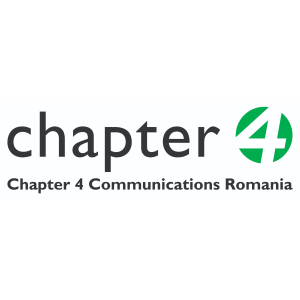Practicing crisis communication since 2001 for over 10 years now, I know that sometimes you feel alone, as most of the situations are confidential and you can talk about them with a very limited number of people. In such a lonely place, in the middle of a crisis, I messaged Amanda and asked for an hour of her time. It was a very efficient hour.
For more than 20 years, Amanda Coleman worked on the inside with a range of police (Greater Manchester Police) and civic leaders and helped them respond to some of the UK’s biggest crisis incidents and sustained reputational attacks. She is the author of Crisis Communication Strategies, a book that brings together some of that knowledge and experience to provide a starting point for people developing or revising crisis communication plans.
So, when the crisis with the Champions League happened, police being involved, I asked her to write together some ideas down, what we have both learned and perhaps share some insight with PR people in Romania.
The unfolding of a crisis
On the 28th of May Champions League final between Liverpool and Real Madrid kicked off following a 35-minute delay after police tried to hold off people trying to force their way into the Stade de France with the trouble having stopped before halftime.
Even then, the stadium announcement said that the kick off was being delayed "due to the late arrival of fans".
“People attempted to penetrate the stadium. They forced their way through the first filter. The screening at the Stade de France is watertight,” French police said in a statement. Dozens of individuals forced their way into the stadium premises and others outside, including children, were tear-gassed by riot police.
Former England international and television pundit Gary Lineker tweeted: “Finding it impossible to get in the ground. This appears to be very dangerous. Absolute carnage.”
Spain's secretary of state for Sport Jose Manuel Franco said: “I waited an hour 100 metres from the stadium.”
“The rapid intervention of the police allowed a return to calm and for troublemakers to be evacuated away from the entrance,” the France police statement said, mentioning also the fact that Liverpool fans came with fake tickets, and they are to blame.
The strategy to blame the British fans
Amanda Coleman: I would like to think that this was an error that was compounded by other organisations rather than being a deliberate and determined effort to lay the blame firmly at the British supporter’s door. In developing communication in these circumstances, it is vital to focus only on what is known 100 per cent and not to try and fill in the gaps or apportion blame.
As we saw with the coverage of the Hillsborough tragedy. It has taken many years to tackle the way blame was discussed in the initial communication. I would have hoped that organisations would have learnt from this terrible situation and ensured that blame is not a focus of their communication.
Ana-Maria Diceanu: It is clear for me that each party involved had a separate crisis cell, which in this situation was a failure. All affected stakeholders had its own crisis strategy and approach, which is not ok taken into consideration the facts. If the crisis would have been seen as one problem for all, then all should have been at the same table and decide on messages and strategy. Separately they decided to blame each other, loosing from their crisis management approach the main stakeholder: the people.
For me it is strange that this was not discussed in advance. My recommendation to all companies is to always have a PR person at the table when drafting business strategies, launching products, organising events. A PR person, with crisis experience, can put on the table scenarios, and this example shows that you need scenarios because you never know when and how a crisis will hit. PR people are more and more valuable for businesses these days, and the difficult years that past with the health crisis and now the economic crisis at the door have shown how PR can help a business. Regardless of the good news you bring to stakeholder, always have a PR person close. Reputation and trust are so easy to lose these days. Look at the reactions of UEFA sponsors after the crisis in Paris.
French Govt thank the police for using tear gas on protestors...
Amanda Coleman: They have lost sight of the people who were affected by what happened. There were families, young children and older people all caught up in this. The response appears to have been disproportionate, but I would be counselling a senior leader not to be praising actions that have left innocent people affected and, in some cases, incapacitated.
Ana-Maria Diceanu: French Interior Minister Gerald Darmanin made several mistakes in communication that triggered not only negative reaction from the British stakeholders, but also from politicians in France. I believe that he wanted to point out that the involvement of the police avoided a more tragical situation, I only hope that it was actually a misinterpretation on the message…but even so, in crisis messaging needs to be clear, focused, and true. Talking only about what you know is very important. The rules say: avoid saying too much to early or too little too late.
How can public interpret the lack of responsibility of the institutions involved
Amanda Coleman: When a crisis happens people want those involved in the situation to say something, to recognise what has happened and where there is some culpability admit it and say sorry. This doesn't have to be done in the first few hours, but it took seven days before UEFA apologised but they still refused to retract the blame that was laid at British supporters. This in turn can ask more questions of that organisation in relation to the time taken to apologise and the failure to correct inaccuracies in earlier communication.
I would say there are three key things vital within the initial communication after a crisis has happened. First, recognise the impact the situation has had on people and explain what is being done to lessen the impact. Second, provide facts and details that do not blame or single out people, deal with what is known so that you can build trust and confidence. Third, be accountable and if you are not sure about what role you may have played explain that it will be reviewed and preferably in some independent way.
Ana-Maria Diceanu: authorities tried to switch the attention from what happened at the stadium to the fake ticket problem. In any crisis, when people are involved, money is the last topic to bring up in communication.
It was clearly a mistake of how the event was organised, it was reported in the media that the top security officials at UEFA were not even actively involved in Champions League final control room.
Can comms decision still be corrected?
Amanda Coleman: The short answer is yes. What needs to happen is a communication that apologises for those unacceptable comments with an explanation of what is being done and how things are being addressed. This requires organisations to be humble and to accept some short-term impact on reputation with a view to building back stronger in the coming weeks. But it requires a consistent and agreed plan to be followed.
Ana-Maria Diceanu: There is always time to correct a mistake, but first you need to admit you have done one. UEFA I think had an apology issued to the fans for the situation that should never happen again. The police also issued as apology statement on the 9th of June. Paris Police Chief Didier Lallement admitted that the chaos at the Stade de France at the Champions League Final was "obviously a failure" and said he takes "full responsibility for police management" of the event.
Talking about mistakes and crisis I would like to point out two things that I discuss with my clients. Always learn from the things that did not work well in managing a crisis. So never close a crisis without point out what you have learned and what you can improve in the future – here for example we can write down the fact that scenarios of issues need to be defined and having a common crisis approach is key.
And second, there is never too late to say, “I am sorry”. I know that these words are very well protected by the legal department of any organisation but accepting that a mistake was made opens the path to saving the reputation.
























